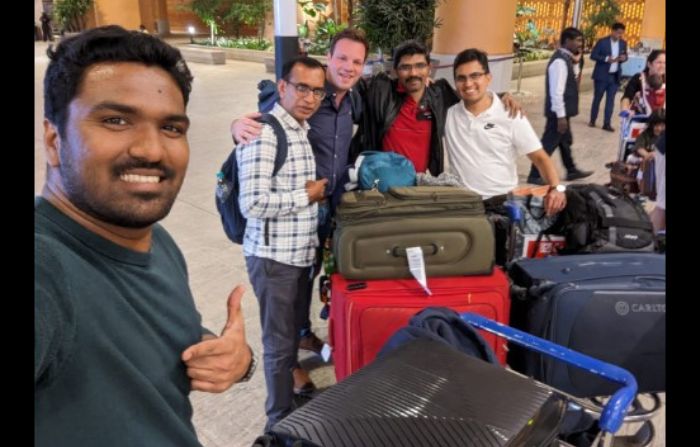- Saturday, July 27, 2024
Arrhythmia Alliance Pace4Life is sending the doctors from Milton Keynes Hospital Foundation Trust and North Middlesex University Hospitalto Sri Sathya Sai Institute of Higher Learning in the Indian city.

By: indiaweekly.biz Staff
ARRHYTHMIA Alliance Pace4Life (A-A P4L), a charitable organisation, is dispatching heart rhythm specialists from Milton Keynes Hospital Foundation Trust and North Middlesex University Hospital (NMUH) to Sri Sathya Sai Institute of Higher Learning (SSSIHL) in the southern Indian city of Bengaluru.
Their mission is to administer life-saving treatments to 100 patients requiring cardiac implantable devices and ablations.
The A-A P4L Mission is spearheaded by Dr Mark Davies, consultant cardiologist and electrophysiologist, along with Ragupathi Balasubramanian, chief cardiac physiologist, both from Milton Keynes University Hospital (MKUH) NHS Foundation Trust.

Also joining the mission are Dr Irfan Kazi, cardiology specialty registrar from MKUH, and William Jesjuraj, chief cardiac physiologist, from NMUH.
A-A P4L offers cardiac implantable devices (CIEDs), including pacemakers, as well as training to local cardiac teams. This initiative aims to enhance skills or establish new services in low and middle-income countries (LMIC) or areas where access to these life-saving treatments is limited.
Read: Why Adelaide Cottage may not suit Catherine’s recovery from cancer
In the UK, nearly 35,000 individuals receive cardiac device implants annually. However, once these devices are no longer required or the recipient passes away, they are typically disposed of in landfills. A-A P4L, in collaboration with an FDA-approved research program in the United States, offers a solution by recycling, sterilizing, and reusing devices with over five years of battery life.
In contrast, the LMICs experience around 2.5 million deaths annually due to the unavailability of funds for life-saving devices and treatments. To address this inequality, A-A P4L focuses on donating recycled devices to individuals in the LMICs.
Since its inception in 2019, the programme has significantly expanded, with a growing number of missions and a target of reaching 600 implanted devices by the year’s end.
Read: British researchers develop first vaccine for lung cancer
The latest A-A P4L Mission is heading to SSSIHL to perform treatments such as cardiac VT ablation, which will be performed by Dr Davies.
Speaking about the mission, Dr Davies said, “A-A P4L has provided us with the opportunity to make a real difference to those in need in India. Patients are travelling from all corners of the country to receive our help. We want to break previous records by treating at least 100 people whose lives will be transformed with the simple implant of a cardiac device which will give them hope and a life beyond a potentially fatal heart rhythm disorder.”
Balasubramanian, who is also the organiser of the India mission, said, “It is an honour to assist Dr. Davies in delivering such potentially lifesaving and life-changing treatment that would otherwise not be possible for so many people.”
Trudie Lobban MBE, founder and Trustee of Arrhythmia Alliance, said, “Another mission, another country, Arrhythmia Alliance ethos is collaboration and no better example than a dedicated team of volunteers giving their time and expertise to help others, not just the patient but also fellow medics to upskill so they can continue life-saving treatments after our mission returns to the UK. We hope anyone with an implantable device will consider donating once they no longer need it or as a legacy after their death. What better legacy than giving life to someone in need.”